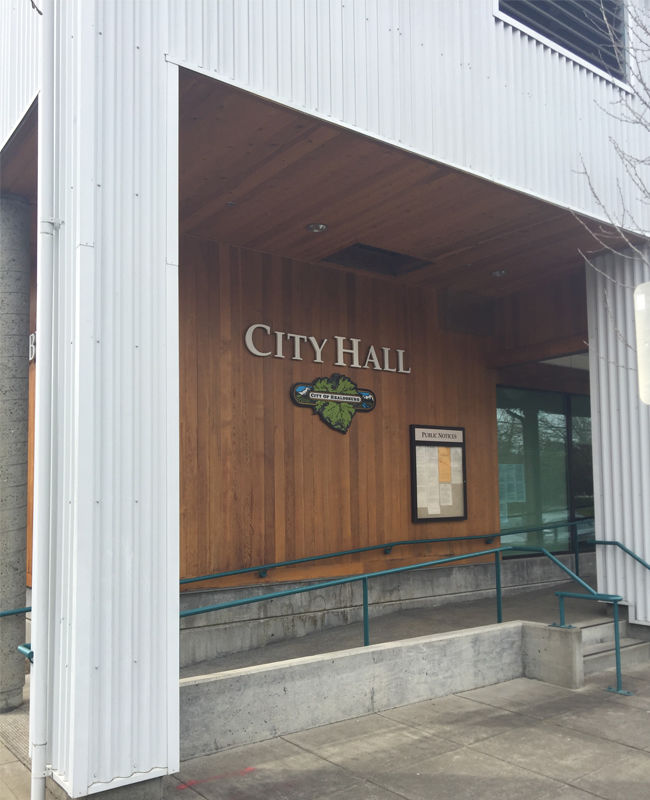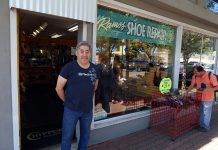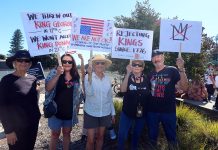Loan forgiveness is one of a few city initiatives being considered following the city receiving funds from the American Rescue Plan
The city of Healdsburg will be receiving $2,833,576 from the American Rescue Plan Act COVID-19 relief stimulus package and the city is considering using some of the funds for a loan forgiveness program for the small business sustainability loan program that was offered to local businesses last May.
While the item has not yet been voted on by the Healdsburg City Council, the council did give direction to staff to come back with a detailed plan for a forgiveness program that would include an application process and an application review committee.
On the long list of other potential uses of the funds, council members said they also want to prioritize stabilizing the city fund reserves, working on road infrastructure improvements and exploring the possibility of a universal basic income pilot program.
Payment details
The payment from the federal rescue plan act will come in two installments, one this month and one in 12 months and the city must spend its allocation by 2024 per the bill stipulations.
“We’ve got plenty of needs and I think there is value in being hurried in that expenditure and being efficient,” said Healdsburg City Manager Jeff Kay.
Eligible uses for the funds cited during the June 21 city council meeting include supporting public health expenditures by funding COVID-19 mitigation efforts, medical expenses, behavioral healthcare and public health and safety staff; addressing negative economic impacts caused by COVID-19 including economic harms to workers, households, small businesses, impacted industries and the public sector; replacing lost public sector revenue; providing government services to the extent of the reduction experienced due to the pandemic; provide premium pay for essential workers; offering support to those who have borne the greatest health risks; and investing in water, sewer and broadband infrastructure.
Considering small business sustainability loan forgiveness
Vice Mayor Ozzy Jimenez had to recuse himself from the loan forgiveness discussion since his business, Noble Folk Ice Cream & Pie Bar, received a loan from the city’s small business loan program.
In an effort to help struggling businesses during the start of the COVID-19 pandemic, the city council committed $600,000 from the Measure V fund in May 2020 for the small business sustainability loan program.
Seventy-six Healdsburg small businesses received a one-time loan from the program.
Over 50% of the funds went to micro businesses — businesses with fewer than five full-time employees — and there is roughly an overall outstanding balance of $560,000.
Payments are delayed until November 2021 and payment schedules vary from three to five years.
If the loans are forgiven, part of the American Rescue Plan Act funds could be transferred to the Measure V Fund as reimbursement.
“A plus side in doing that is the fund will have been paid back sooner than anticipated from this program and then would have a higher fund balance without any restrictions,” Kay said.
Councilmember Ariel Kelley said she liked the idea but instead of creating one large blanket program, there should be an application process. She said she’s heard of some businesses who are doing financially well and have said anecdotally that they should be able to repay their loan.
“Without appropriate weight given to equity, both from a lending perspective of who struggles to access capital, from small businesses as well as from equity between a dentist versus a restaurant, versus a hotel, I think having some sort of forgiveness application I would be comfortable with, but I’m not comfortable with just a wholesale ‘let’s forgive all of them,’” Kelley said.
Councilmember David Hagele agreed with Kelley’s application idea and said there should be some kind of threshold for loan forgiveness.
Councilmember Skylaer Palacios also agreed, and suggested that perhaps in some cases, it can be a partial forgiveness where businesses pay back a certain percentage of their loan.
Maylor Evelyn Mitchell agreed with her colleagues and said loan forgiveness needs to be a fair process. She suggested a loan forgiveness committee with community members who would review the applications.
Resident Kimberly Bender said she was glad to hear that the city is considering some sort of loan forgiveness initiative.
“I am so glad to hear that you are thinking about an application process. I think it could be very simple, I think a loan forgiveness committee is a great idea. Some businesses have already paid them, but I think you would be able to recoup a significant amount of money that could go to some other priorities listed in the American Rescue Plan Act,” Bender said during the public comment portion of the meeting.
Costeaux owner Will Seppi also voiced support for the forgiveness program.
Other options
During the meeting, staff suggested a slew of other projects and basic city infrastructure needs that the $2 million could help fund.
Additional options include:
-Restore limited special events funding ($50,000)
-Restore open space maintenance funding ($50,000)
-Support free recycled water deliveries ($35,000)
-Water conservation incentives ($40,000)
-Restore emergency preparedness specialist position ($150,000 yearly).
-Drought related facilities management ($100,000)
-Restoration of Badger Park funding bonds ($320,000)
-Restore park maintenance funding ($120,000)
-Breathing apparatuses for fire department ($40,000)
-Restore funds for public works roof replacement ($60,000)
-Planning and building service center ($35,000)
-Fire hydrant replacement ($130,000)
-Equipment to outfit new fire department ladder truck ($50,000)
-North Healdsburg Avenue improvement matching funds ($100,000)
-Public WiFi upgrades ($75,000)
-Accounts payable to software upgrades ($40,000)
-Records management software implementation ($40,000)
-ServiceNow Workflow software expansion ($50,000)
-Streets and sidewalk work (tbd)
-Housing element plan ($200,000)
-City community wildfire protection plan ($70,000)
-Equity facilitation and consulting work ($50,000)
-Cannabis policy development ($50,000)
-Enhanced homeless outreach ($50,000)
-Nonprofit support (to be determined): Requests from First Five, 211, Redwood Empire Food Bank, Corazon, Healthcare Foundation, Alliance Medical Center. Consideration of a grant program to be allocated at a future time with support from local foundations and support summer camp.
-Review proposal to support a universal basic income pilot program (TBD)
City staff came to their suggestions after reviewing city programs and projects that were defunded during COVID, soliciting city departments for suggestions and reviewing the Measure V community survey and requests and suggestions from numerous local organizations.
“Keep in mind that reserves aren’t back up to 30% … with that in mind I want to be cautious, invest in infrastructure and see where we can bridge the funds. I like the idea of investing in the streets and I like the staff recommendations on the items that were listed, but the more we can leverage the funds to obtain other grant funding and refill some of the things that we had to cut by refilling that, that gets us closer to get those reserves back up to 30% and I think that is really important and that should be our goal before we start looking at other avenues or new programs,” Hagele said.
He liked the idea of allocating a percentage of the relief funds to local nonprofits, similar to what the city used to do with the community benefit grant fund.
“These are one-time funds that the city is getting so I think part of the discussion is do we want to do something transformative with these items and then also, do we really want to make sure we do our due diligence, for example, making sure we are fiscally responsible in our reserves,” Jimenez said, “I want to point out that we really need to be looking at these funds from a perspective of equity, specific to the streets. Whatever work is done it needs to be looked at from that perspective because there are areas of our city that have been underserved historically, so I’d like to see the funds be looked at through that perspective.”
Jimenez said he would like to see more money earmarked for city equity task force work and said he would support a 10% investment in a community-based fund to be distributed equitably to nonprofits.
Palacios agreed with Jimenez and Hagele, but also advocated for a stimulus program for those like the undocumented community, who couldn’t get a stimulus check.
Kelley said she would love to see the public WiFi improvements prioritized and pointed out that many kids had trouble during distance learning because they had little to no WiFi access, especially in households who cannot pay for data plans. She added that she wholly supports the idea of creating a universal basic income pilot program and added that funds for child care should also be prioritized.
City staff will return to the council in a few months with a more concrete allocation plan.









